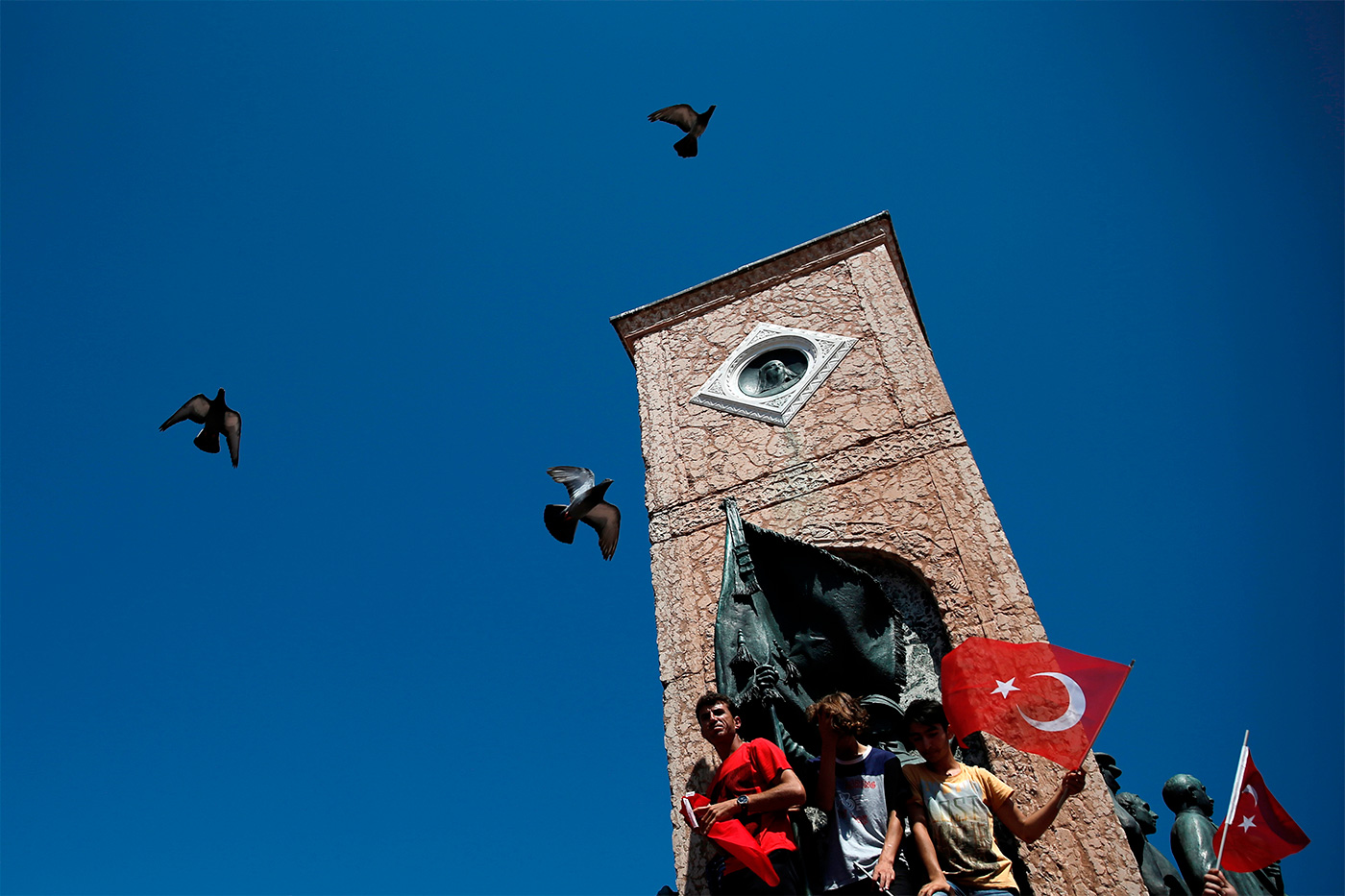Events in Turkey: Reaction in the Balkans
In
Login if you are already registered
(no votes) |
(0 votes) |
Ph.D. in History, Senior Research Associate, RAS Institute of Slavonic Studies
One interesting aspect of the abortive coup in Turkey on July 16, 2016 is its impact on the Balkan countries. Ankara’s presence in the Balkans has been growing since 1992, when Turkey and Albania created a military alliance, and now it can be seen in various forms – from peace-keeping forces to investment and “soft power.” With Turkey encountering difficulties in its relations with Europe, the United States and the Middle East, the Balkans is just about the only region where Turkish positions in the last 25 years have gone from strength to strength without any rollbacks (as, for instance, in relations with Russia and the European Union). [1]
On Saturday and Sunday all the republics of the former Yugoslavia, plus Bulgaria and Albania, condemned the coup, repeating the formula proposed by John Kerry and Brussels in support of the “legitimate and democratically elected” Turkish government.
Each country had its own reasons for echoing the official statements. One could hardly expect anything special from Slovenia and Croatia. Slovenia is too distant from the East, and Croatia is busy preparing for the upcoming early election and lacks a proper government. The remaining countries fall into two categories.

REUTERS/Alkis Konstantinidis
The first includes Bosnia and Herzegovina, Kosovo, Albania, and the Muslim communities in Serbia and Montenegro, which are the main beneficiaries of Ankara’s political and financial assistance. Hypothetically, the fall of the Turkish regime could have led to rethinking of these relations, so it is not surprising that a spontaneous rally under red flags with a white crescent occurred late at night near the old Sebilj Fountain in Sarajevo.
The leaders of these states and communities emphatically supported the Turkish authorities. The Bosnian Muslim leader Bakir Izetbegovic referred to Erdogan as a “brother”; Albania’s Prime Minister Edi Rama called him a “friend”; and President of Kosovo Hashim Thaci said that “the will of the Turkish people proved stronger than any tanks”. Rifat Feyzic, Chief Mufti of Montenegro, described the actions of the coup-makers as treason.
The stream of pro-Turkey sentiment drowned out the dissenting voices of some Muslims in Bosnia who oppose Turkey being the only orientation. They mainly criticize Recep Erdogan for his authoritarianism, Islamism (which allegedly harms the secular forces in Bosnia and the “unique Bosnian identity”) and support for discredited Sarajevo leaders (Bakir Izetbegovic). On the night of the coup, these groups published texts with headlines such as “The Night Erdogan Was Supposed to Fall” and their sympathies were rather on the military’s side. Although that trend is weak, its existence cannot be dismissed, as it shows that Bosnian Muslims are not homogenous politically and that there is some discontent with the national elites.
The second category includes Serbia, Montenegro, Bulgaria and Macedonia, where the keynote of the coverage is the need for the stability of existing regimes. President of Montenegro Filip Vujanovic noted that Turkey managed to avoid “a violent regime change”, while the Serbian media presented Recep Erdogan as a hero and praised the people for responding to his call to come out in defence of their leader (see photo). A discordant note was struck by the liberal Serbian publication B-92, which highlighted the atrocities committed by Erdogan supporters when disarming the soldiers.
It is interesting to have a look at the assessment of the situation given by the Montenegrin opposition that sets against the Euro-Atlantic integration of the country. They too condemn the coup attempt, but they see it as NATO military machine’s act of violence against civilians. Apparently, this is an oblique reference to the possible actions of Montenegro’s security forces in the event of fresh protests against the Djukanovic regime. The opposition in Serbia draws attention to the manipulative tactics of the local media, likens the Erdogan regime to that of Aleksandar Vucic and notes that support for Erdogan is contrary to the reality that Turkey brazenly thwarts Serbian interests in all the disputed spots in the Balkans and is an enemy of Russia in the Syrian and Ukrainian crises.
An emergency meeting of the Serbian Security Council held on the night of July 15–16, 2016 decided to form a joint army and police force (under Article 39 of the Law on Defence). Its tasks are to tighten border control in the face of the likely influx of refugees, and prevent terrorist attacks and ethnic strife inside Serbia, whose population is 3.2% Muslim.
However, the actions of Aleksandar Vucic were prompted less by the crisis in Turkey than by the unresolved refugee crisis and Hungary’s unilateral actions in seeking to reject the migrant quotas imposed by the European Union. If Hungary goes ahead and once again closes its border, there will be a repeat of the 2015 situation, except that this time around more migrants will stay in Serbia. Aleksandar Vucic has changed his rhetoric: a year ago he spoke about Serbian hospitality, but today he says that Serbia cannot be a “parking zone” for refugees.
Serbian Prime Minister intends to hold talks with his Hungarian counterpart, Viktor Orban, and Prime Minister of Bulgaria Boiko Borisov within the next two days to coordinate border efforts of their countries. Aleksandar Vucic expects Hungary to help Serbia on its borders with Macedonia and Bulgaria. Thus, the Turkish crisis is more of a pretext for rethinking Serbia’s strategy on the migrant issue.
As for Turkey, it seems that, faced with a serious crisis and on the threshold of constitutional change, the Turkish regime needs visible success to legitimize its new status. Such a success can be scored in the Balkans, where Turkey has strong economic and cultural positions, several loyal partners and many years of constructive interaction with Brussels on Bosnia and Kosovo. Addressing a rally on July 16, Erdogan said that the Turks, Bosniaks and other peoples are a single divided nation and country in the space between the Balkans and the Caucasus, a statement that can be seen as a token of gratitude to the Balkan leaders. But even more importantly, it shows that, in spite of internal turmoil, Turkey has no intention of giving up the neo-Ottoman motives in its foreign policy.
1. See: Glazova A.V. Turkish Policy in the Western Balkans // Problemy natsionalnoi strategii. No. 2 (17), 2013, pp. 22–34.
(no votes) |
(0 votes) |




